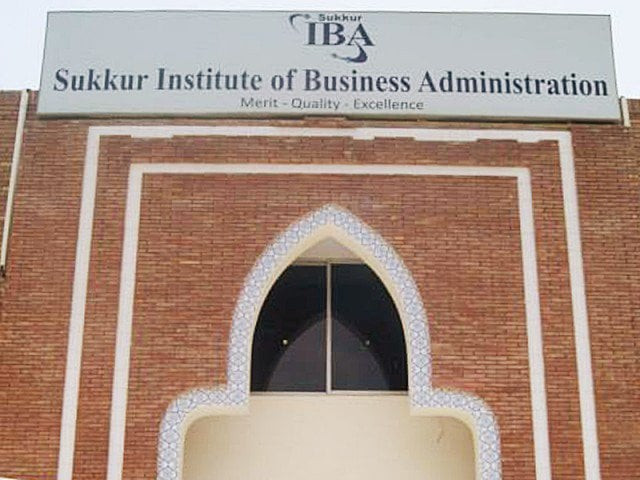‘Pakistani parents more in favour of start-ups than other countries’
Sukkur IBA Executive Development Centre shares details of Guesss project

He was sharing the findings of Global University Entrepreneurial Spirit Students' Survey (Guesss), an international research study project initiated in 2003 by the Swiss Research Institute of Small Business and Entrepreneurship at the University of St Gallen. Guesss provides insight into the entrepreneurial intentions and interest of university students towards entrepreneurship across the world.
In an exclusive interview with The Express Tribune, Dr Samo shared the findings of Guesss 2016, the seventh edition of the project which was conducted last year. Over 122,000 students across 50 countries participated in the survey and Sukkur IBA led the project in Pakistan, where a total of 1,099 students across 15 universities took part. Dr Samo also serves as the country representative of Guesss.
In the study in Pakistan, 62% of the respondents were male and 38% were female. Of these, 58.5% were undergraduate students while 21.7% were graduate students and19.8% were students of PhD and MBA.

When it comes to confidence levels to open their own entrepreneurial venture, Dr Samo said that female students have a more positive attitude towards starting their own business than their male counterparts. However, both male and female students have an equal level of self-efficacy. Students get more support for entrepreneurial careers from their families especially when one or more member of their family is an entrepreneur.
Among active student entrepreneur businesses, 30% have no employees, which is reflective of the global trend where 26.9% of active entrepreneurs have no employees at all. The nature of the business varies among active student entrepreneurs. Eighteen per cent students are active in trade, 22% in education and training, 10% in IT and software while 8% in manufacturing.
Dr Samo found it encouraging that more students in Pakistan were favourable to the idea of becoming entrepreneurs right after completing their studies.
However, many students are unable to convert their ideas into start-ups in Pakistan, the Guesss director admitted. This may be due to an unfavourable environment for doing business in Pakistan, in general, as indicated by a World Bank report of 2014, he added.
Universities should also help students develop an understanding and practice the knowledge, skills and techniques of doing business so their ideas can turn into start-ups, he advised. To overcome this barrier and foster entrepreneurial climate, universities need to have more innovative ways so that the percentage of active entrepreneurs can be increased, he said.
"This survey is the best way to support the hypothesis related to entrepreneurship intention of students in Pakistan," said a Sukkur IBA student of BBA-VI Sabir Ali Bhutto. "It is not hard to start a business but it becomes hard when young entrepreneurs lack the key elements of 'not giving up' and 'resource', he said.
"Most businesses have a sufficient amount of money at the start when they initiate a new business but what happens later when they don't get enough profits?" he asked. "They quickly switch the businesses or shut down."
Bhutto felt that, apart from money, Pakistan needs someone to guide young people to start their own businesses and stay motivated. The government should provide ways of getting loans easily because when these young people go to banks, he pointed out.
Similar views were shared by an engineering student from Mehran University of Engineering and Technology, Jamshoro. Mohsin Ali said that we have huge business opportunities for engineering, tool manufacturing and civil work but most engineers go for high-salary jobs at the end of their degree.
The findings of this survey are already being appreciated by organisations looking after businesses and trade. "It is very difficult for beginners to enter businesses in Pakistan," said Sukkur Chamber of Commerce and Industry's former president Aamir Ghauri.
"First of all, it is very difficult for fresh graduates of business administration to get money, which is the precondition to start any business," he pointed out. "When fresh entrepreneurs apply for a bank loan, they have to go through a lot of paper work, including guarantees and the lengthy process often becomes discouraging for the young people."
Even the government's soft loans for young entrepreneurs are a highly politicised process, said Ghauri.
Published in The Express Tribune, February 19th, 2017.



















COMMENTS
Comments are moderated and generally will be posted if they are on-topic and not abusive.
For more information, please see our Comments FAQ